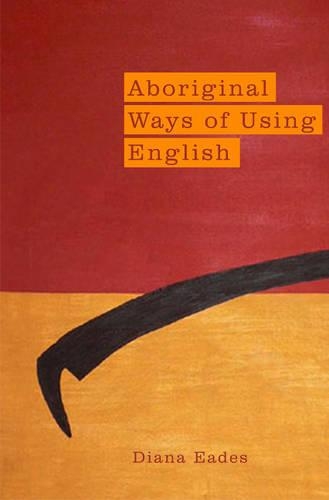
Aboriginal Ways of Using English
(Paperback)
Publishing Details
Aboriginal Ways of Using English
By (Author) Diana Eades
Aboriginal Studies Press
Aboriginal Studies Press
1st June 2013
Australia
Classifications
General
Non Fiction
420.7
Physical Properties
Paperback
256
Width 152mm, Height 230mm, Spine 15mm
490g
Description
This new collection by Professor Diana Eades addresses the way non-traditional language Aboriginal speakers of English use and speak English. Here she draws together some of her best writing over the past thirty years. Older chapters are brought up to date with contemporary reflections, informed by her many years' experience in research and teaching as well as the practical applications of her scholarly work. The introduction includes an overview about Aboriginal ways of speaking English and the implications for both education and the law, as well as discussing the use of the term 'Aboriginal English'. To understand Aboriginal ways of speaking English leads to be better understanding Aboriginal identity, a better engagement in intercultural communication, and learning about the complexities of how English is used by and with Aboriginal people in the legal process. This is invaluable reading for university undergraduates in a range of disciplines but also postgraduate courses where there's little information available. Educated readers and students with or without a linguistics background will find the book accessible.
Reviews
"This is a long-awaited book from one of the leading forensic linguists whose work has had a profound effect on several aspects of the Australian legal system. Diana Eades covers all aspects of interaction within the legal process from the first interview a suspect has with the police, through consultations with lawyers to the complexities of courtroom talk. There is also specific focus on the special problems of child witnesses and those who are not fluent in the language of the court. All readers will find new insights." --Malcolm Coulthard, professor of forensic linguistics, Aston University, UK, on "Sociolinguistics and the Legal Process"
Author Bio
Diana Eades (Adjunct Professor, University of New England) specialises in critical sociolinguistics, language in the legal process, and intercultural communication, particularly involving Australian Aboriginal people who speak varieties of English. In addition to her extensive scholarly publications, she provides expert evidence in courts, and delivers training for lawyers, judges and magistrates. At various times she has been President, Vice-President and Secretary of the International Association of Forensic Linguists, and she is co-editor of The International Journal of Speech Language and the Law.
